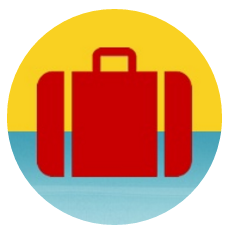Lufthansa and United first two carriers using platform to enhance customer experience
STOCKHOLM, Sweden, 2018-Feb-16 — /Travel PR News/ — Star Alliance has launched a Digital Services Platform (DSP) as a first step to an overall enhancement of digital and mobile services offered to customers travelling across the 28 airline member Star Alliance network. The platform was developed and implemented in conjunction with global professional services company Accenture (NYSE:ACN) as part of the Alliance’s strategy to further improve the customer journey.
The DSP can gather data provided by an individual member airline or third-party source and make it available to all members, enabling them to build it into their own customer-facing digital applications. The longer-term aim is to allow customers to use any member airline’s website or mobile application to obtain all the information they need for travel on several Star Alliance member airlines.
“Most frequent travellers have a ‘home airline’ in our network and would prefer to control their entire travel experience through a single app or website,” said Star Alliance CEO Jeffrey Goh. “We are therefore working to create central capabilities that can be shared for use by our individual members.”
Once a service offer is available from the DSP, member airlines can decide individually if and when they make it available to customers. For instance, a seat selection feature launched on February 2nd now allows a United Airlines customer to select a seat on Singapore Airlines flights booked via united.com or the United App. As a result, the customer travelling on fare types that include complimentary advance seat selection can choose a specific seat at time of reservation for the entire journey on United Airlines and Singapore Airlines, rather than only at time of check-in. This feature will be made available across the Alliance progressively. Lufthansa is also using the DSP technology to provide baggage tracking information for its customers on journeys that include flights on other Star Alliance airlines. The data is provided by the Star Alliance Baggage Hub which went into operation at the end of 2016. It collects relevant baggage information from a wide-range of sources and makes it available to all member carriers included in a passenger’s itinerary.
In addition to helping develop and implement DSP, Accenture is supporting Star Alliance with on-going work to identify customer pain points and expectations. As part of DSP development, Accenture incorporated design thinking methodology that draws upon logic, imagination, intuition and systemic reasoning to explore possibilities of what could be and create desired outcomes benefitting the end user. Accenture leveraged its Liquid Studio – which is part of a global network of studios that focus on rapid application development approaches and applying disruptive technologies – at its Future Camp in Kronberg, Germany.
Critical to the development of DSP services is to ideate, prototype and develop DSP features from a customer perspective. The aim is to identify these more frequent issues or areas for improvement that may arise when customers are travelling on one or more airline, as well as in the event of service disruptions.
“A seamless travel experience for airline customers depends on an airline’s ability to participate in a broader travel ecosystem spanning the whole spectrum of the aviation, travel and tourism industry,” said Robert Zippel, who leads technology consulting within Accenture’s Travel industry practice. “Airlines need to embrace collaboration with their alliance member carriers and associated ecosystems to orchestrate a greater understanding of a traveller’s fast-changing requirements. By offering real-time data exchange and standardised applications to improve a customer’s travel experience for multiple carrier journeys and beyond, the Star Alliance DSP is a great example of a system that enables this kind of collaboration.”
The DSP is an integral part of a wider Star Alliance strategy to place the customer at the centre of its activities, especially since today’s travellers are ‘always connected’, thanks to their mobile devices. Hence they expect services and information updates at their fingertips and to be able to take control of their own journey. In the airport environment, this means the Star Alliance is increasingly offering self-service technologies wherever possible, for example at passenger and baggage check-in as well as for boarding at the gate.
In loyalty, improvements have already been implemented using IT Hub technologies. This includes, for example, a speedier crediting of mileage after a flight, as well as enabling customers to claim all missing mileage from Star Alliance member airline flights online, via the customer’s respective Frequent Flyer Programme (FFP). By the end of 2018, these member carrier FFP websites will allow customers to check flight availability and book redemption seats online for flights operated by all 28 Star Alliance member airlines.
Star Alliance will continue to work with the member airlines to roll out further services and enhancements, focused on enabling customers to receive an improved digital experience on their interline journeys.
SOURCE: SAS AB
Further information can be obtained via:
Star Alliance Press Office
Tel: +49 69 96375 183
Fax: +49 69 96375 683
Email: mediarelations@staralliance.com
www.staralliance.com
Twitter @staralliance https://twitter.com/staralliance
Facebook: www.facebook.com/staralliance
LinkedIn: https://www.linkedin.com/company/star-alliance
Youtube: https://www.youtube.com/user/staralliancenetwork
Instagram: https://instagram.com/staralliance/
Accenture
Cam Granstra
+1 312 693 5992
cameria.l.granstra@accenture.com
Thomas Wittek
+49 175 57-63105
thomas.wittek@accenture.com

